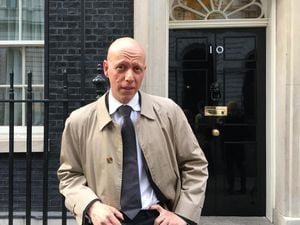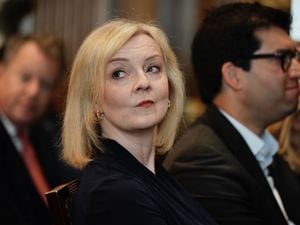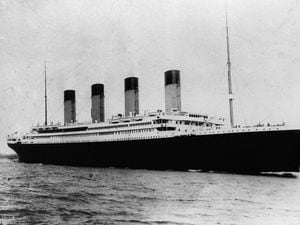Peter Rhodes on flying fascinators, an idea for a TV game and a new crime of our time
"I HAVE always struggled with fascinators."

Royal correspondent Jonny Dymond, admitting he's no great fan of the feathery headgear favoured by royal-wedding guests.
MUCH innocent amusement was provided by the royal-wedding guests' hats blowing off in the stiff breeze at Windsor. There is something about a £500 fascinator bouncing down the street with a morning-suited merchant banker in hot pursuit that tickles the low and rather vulgar funnybone of the average Brit. There is surely the germ of an idea here for a TV game: Toffs and Titfers. Over to you, Prince Edward. . .
YES, that's how Jonny Dymond spells his name. It seemed so odd that I checked it with Google. And that led to yet another encounter with the way computers think. Having delivered the correct spelling, Google displayed a message "People also ask." This leads to a number of questions which, if you happen to be a computer, are connected to the original inquiry. And those follow-up questions were: "Who is the BBC royal correspondent? Who is the BBC news presenter? Is Stanley Baxter dead? Is Nigella Lawson English?"
WHERE is this going to end? Today, a computer thinks there's a link between Jonny Dymond and Stanley Baxter. What happens some time in the future if the computer driving your car starts thinking that left is much the same thing as right?
IN a Cider With Rosie moment, a reader returned to the village of his infancy and the annual harvest fair. He remembered tables groaning under the weight of produce as dozens of green-fingered gardeners vied for silver cups for the biggest and best fruit and vegetables. Now, most of the horticultural sections have only one entry. The only onion was the best onion and the best carrots were the only carrots.
IN repeated surveys, only about two per cent of the adult UK population identifies as gay, lesbian or bisexual. So you may think the LGBT community gets a pretty good showing in popular culture. Every TV soap has its gay or lesbian characters and we are used to same-sex couples popping up on home-improvement or country-ramble shows. It is a good, healthy recognition that we live in a diverse society. And yet within the BBC, where no fewer than 11 per cent of employees are LGBT, there are fears that the Corporation still has a "heteronormative culture" where, either in the workplace or in the programming, heterosexuality is seen as the normal or preferred sexual orientation. To fight this alleged injustice, Auntie is launching a raft of measures including staff mentoring and more LGBT people appearing in programmes and news reports.
AS the anti-heteronormative campaign was launched, the Beeb posted this press release: "We hope this makes everyone feel included - whether genderqueer, bisexual, gay, lesbian, transgender, non-binary, pansexual, intersex, asexual, queer, questioning or an ally." A text for our time.
NON-LGBT employees at the BBC will be able to wear badges showing they are an "LGBT Ally." No pressure there, then.





